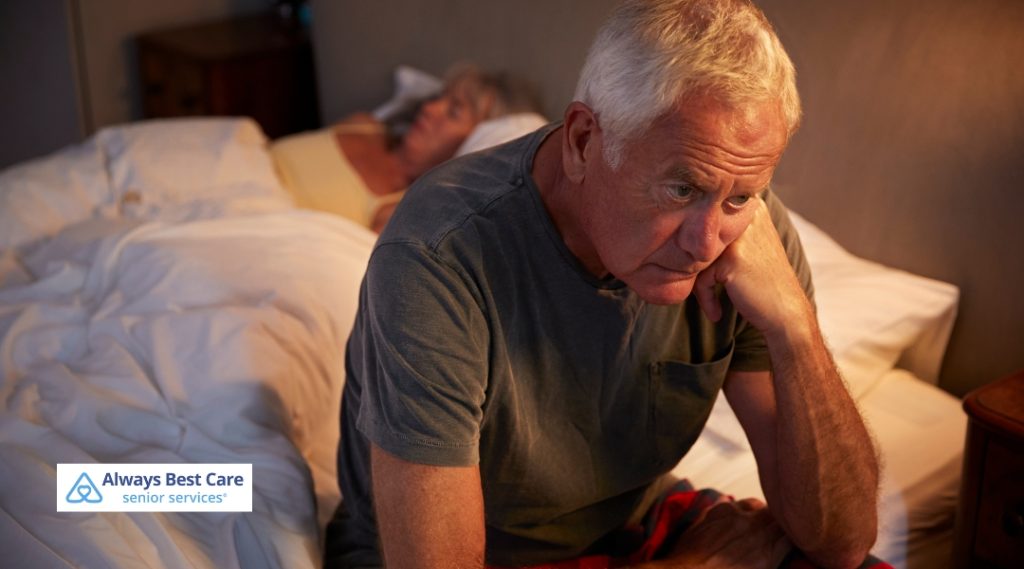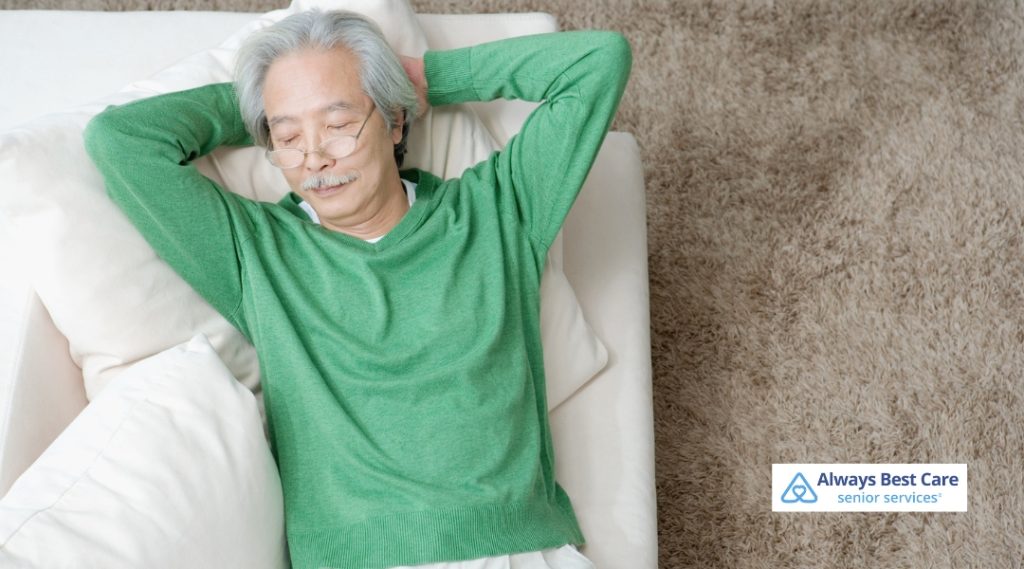Sleeping Soundly: A Senior’s Guide to Beating Insomnia in Westborough, MA

If you’re a senior in Westborough, MA, tossing and turning all night, you’re not alone.
Insomnia is a common issue for seniors, and it can seriously affect your day-to-day life. Whether you’re struggling to fall asleep, waking up frequently, or just not feeling rested when you wake up, these sleep disruptions can take a toll on both your physical and emotional health.
But don’t worry—there’s hope! There are natural, easy-to-implement strategies that can help seniors in Westborough get the rest they deserve.
Let’s explore some simple ways to combat insomnia and enjoy a better night’s sleep.
Table of Contents
Why Do Old People Sleep So Much?
You might have noticed that seniors tend to sleep more during the day.
But why is that?
Here’s the thing: As we age, our sleep patterns change. Seniors often experience more fragmented sleep at night, which can leave them feeling more tired during the day.
Napping during the day helps make up for the rest they’re not getting at night.

4 Common Causes of Insomnia in Seniors
- Health Conditions: Medical issues like arthritis, diabetes, and heart disease can make sleep difficult. Pain, discomfort, and the need to get up frequently during the night to use the bathroom can all contribute to disrupted sleep.
- Medications: Certain medications can interfere with sleep. Seniors often take multiple prescriptions, and some of those—like those for blood pressure or pain—can keep you from getting the rest you need.
- Aging Process: As we get older, our sleep patterns change. Seniors tend to spend less time in deep sleep and may wake up more often throughout the night, leading to a less restful night’s sleep overall.
- Lifestyle Factors: Things like stress, irregular sleep schedules, or too much caffeine in the afternoon can also make sleep harder to come by. When you’re not following a good sleep routine, it can throw off your body’s natural rhythm.
The Physical and Emotional Impact of Insomnia on Seniors
It’s not just about feeling groggy. Insomnia can have some serious effects on your overall well-being, especially as you age. Seniors in Westborough may experience:
- Physical Health Issues: Sleep is crucial for healing and maintaining your immune system. Chronic insomnia can weaken your body’s defenses, leaving you more vulnerable to illnesses. Plus, poor sleep can increase your risk of heart disease, diabetes, and high blood pressure.
- Cognitive Decline: When you don’t get enough rest, your brain can’t function properly. Seniors with insomnia are at risk of memory issues, difficulty concentrating, and slower reaction times, which can be dangerous.
- Emotional and Mental Well-Being: Sleep affects your mood, too. Sleepless nights can make you feel irritable, anxious, or even depressed. It’s harder to enjoy your day when you’re not getting the rest you need.

How to Create a Sleep-Friendly Environment
Sometimes, all it takes is a few environmental changes to help you sleep better. Making your bedroom a peaceful, calming place can work wonders. Here’s how:
- Keep It Cool and Comfortable: Your bedroom should be cool—around 60-67°F is perfect for sleep. Ensure your mattress and pillows are comfortable and provide good support for your body.
- Minimize Light and Noise: A dark, quiet room is key to a restful night. Consider blackout curtains to block out early morning light, or use earplugs or a white noise machine to drown out distracting sounds.
- Declutter Your Space: A tidy, organized bedroom can help you feel more at ease and relaxed. If your room is full of clutter, it can create unnecessary stress. Keep things simple and soothing.
4 Lifestyle Changes to Combat Insomnia Naturally
You can improve your sleep without turning to medication. Simple lifestyle changes can make a huge difference. Here are some tips:
- Stick to a Regular Sleep Schedule: Going to bed and waking up at the same time each day helps your body get into a routine. Your body’s internal clock (circadian rhythm) thrives on consistency, so try to keep your sleep schedule as regular as possible—even on weekends.
- Get Moving During the Day: Exercise is a great way to improve sleep, but try to get your physical activity earlier in the day. Intense exercise right before bed can make it harder to wind down.
- Limit Naps: While napping can feel great, long naps during the day can interfere with your ability to sleep at night. If you need a nap, keep it short—around 20 minutes is ideal.
Avoid Stimulants: Caffeine and alcohol can disrupt your sleep. Try cutting back, especially in the afternoon and evening. Caffeine stays in your system for hours, so it’s best to avoid it after noon.

The Role of Diet in Sleep Quality for Seniors
What you eat—or don’t eat—can affect your sleep. Seniors can benefit from some dietary adjustments to improve sleep quality:
- Foods that Promote Sleep: Certain foods are known to help with sleep. Bananas, almonds, turkey, and whole grains are rich in magnesium and tryptophan, which promote relaxation and help you fall asleep faster.
- Foods to Avoid: Heavy, spicy meals or anything that causes indigestion should be avoided close to bedtime. These foods can make it harder to get comfortable enough to sleep.
3 Relaxation Techniques to Help Seniors Sleep Better
- Deep Breathing Exercises: Take a few minutes to practice deep breathing. Try breathing in for four counts, holding for seven, and exhaling for eight. This simple exercise helps activate your body’s relaxation response.
- Progressive Muscle Relaxation: Start by tensing your toes and working your way up through each muscle group, slowly relaxing each one. This can help relieve physical tension and signal to your body that it’s time to sleep.
- Meditation or Mindfulness: Spending even five minutes meditating or practicing mindfulness can help calm your mind and reduce stress. Guided meditation apps are a great tool to help you fall asleep.
FAQs
1. How can seniors improve their sleep naturally?
Stick to a sleep schedule, avoid caffeine and alcohol, get regular exercise, and create a relaxing bedtime routine to improve sleep naturally.
2. Why do seniors nap during the day?
Seniors may sleep more during the day to make up for fragmented sleep at night. Limiting naps and focusing on improving nighttime sleep can help reduce daytime fatigue.
3. How much sleep do seniors need?
On average, seniors need about 7-8 hours of sleep each night. Prioritizing good sleep hygiene and relaxation techniques can help achieve this goal.

Sleep Better, Live Better in Westborough, MA
If you or a loved one is struggling with insomnia and needs extra support, we are here to help. Contact Always Best Care of Worcester at (508) 304-8556 to schedule a care consultation and learn how our in-home care services can improve your quality of life. A restful night’s sleep is just a call away.





